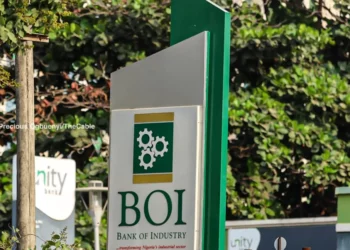Dangiwa stressed the importance of updating compensation, noting that the current rates, established in 2008, are outdated and no longer align with today’s economic realities or international standards.
“The federal government is reviewing these rates to ensure fairness and justice for landowners affected by expropriation. This review, supported by the Rural Access and Agricultural Marketing Program (RAAMP), aims to ensure that compensation reflects the true market value of lost assets, including long-term investments like cocoa, oil palm, rubber, and cashew trees,” Dangiwa said.
The minister emphasized that crops and economic trees, such as cocoa and oil palm, are more than just agricultural assets—they are symbols of cultural heritage and years of labor. He highlighted that the current compensation framework, underpinned by the Land Use Act of 1978, has struggled with implementation, resulting in delays, disputes, and inadequate payouts.
Fair compensation, according to Dangiwa, is not just a legal duty but also a moral obligation. He reaffirmed the government’s commitment to equitable compensation, especially for vulnerable citizens, to ensure that development projects do not impoverish Project Affected Persons (PAPs) but instead promote national growth.
Dangiwa called for the creation of a policy framework that balances infrastructure development with the protection of livelihoods and the environment.
“The true measure of development is not only in the infrastructure we build but in the lives we uplift and the communities we strengthen. I have full confidence that the outcomes of this forum will lead to a more equitable, just, and transparent compensation system for all project-affected persons in Nigeria,” he said.
The government plans to prioritize timely and transparent payments, with particular focus on vulnerable groups such as women, the elderly, and marginalized communities.





